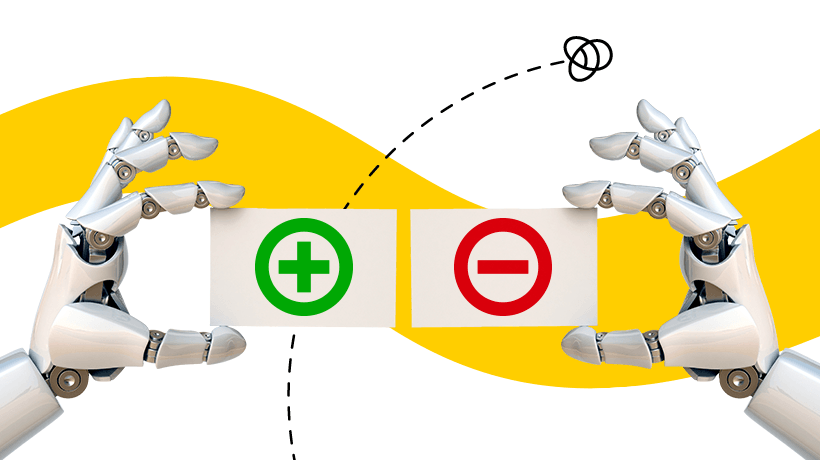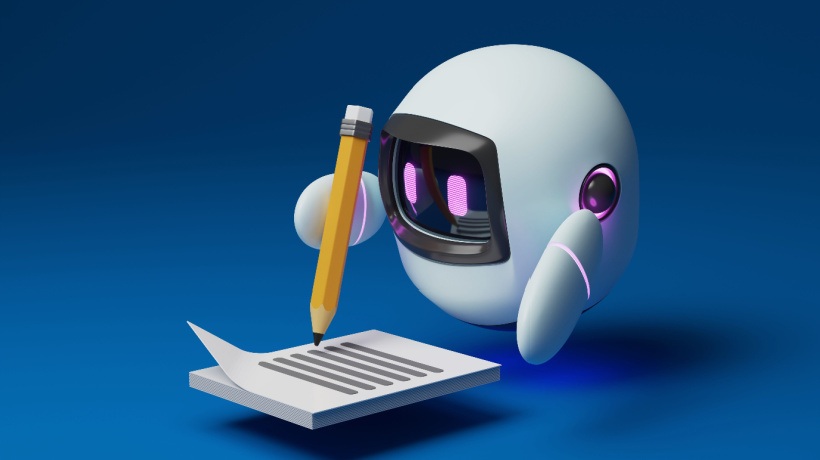AI-Generated Content In eLearning: Opportunities
The Learning and Development (L&D) landscape is experiencing a profound transformation, driven by the integration of Artificial Intelligence (AI). What was once seen as an emerging innovation is now reshaping how training is designed, delivered, and updated. AI in eLearning is no longer optional—it's becoming essential for organizations looking to scale, personalize, and optimize their learning efforts. Among the most impactful developments is the rise of AI-generated content in eLearning and training. From personalized recommendations to automatically generated assessments and interactive lessons, AI tools for eLearning are redefining what's possible. But as with any major shift, this evolution presents both exciting possibilities and critical challenges. Let's explore how organizations can embrace the future of AI in learning while managing the risks and maintaining high standards.
Opportunities For AI In eLearning
1. Scalable, On-Demand Content Creation
AI-generated content can dramatically speed up the production of training materials. What once required weeks of development can now be done in hours. This scalability is ideal for organizations dealing with frequent updates, fast-moving industries, or widespread workforces. Generative AI for content creation allows L&D teams to remain agile and responsive to changing needs.
2. Personalized Learning At Scale
Using personalized learning with AI, training can be tailored to each learner's role, pace, and preferences. These systems track progress and adapt in real time, helping improve knowledge retention and learner satisfaction. For companies aiming to boost engagement and completion rates, adaptive learning powered by AI offers a transformative edge.
3. Rapid Content Localization And Updates
AI can assist in quickly revising existing content or translating it for different audiences. This is particularly useful for compliance training or global rollouts. Automating localization ensures consistency while reducing manual effort, helping maintain relevance and alignment across regions.
4. Continuous Optimization Through Data
One of AI's strengths lies in its ability to learn from data. By analyzing learner behavior and outcomes, AI systems can identify what works best and adjust accordingly. This feedback loop enhances the training experience over time, offering improvements that are difficult to achieve with static, human-authored content alone.
5. Catering To Diverse Learning Styles
Learners consume content in different ways—some prefer videos, others prefer reading, interaction, or gamification. AI tools for eLearning can detect and adapt to these preferences, delivering content in the format most effective for the individual. This kind of personalization is key to inclusive learning strategies.
Challenges Of AI-Generated Content In eLearning
1. Maintaining Quality And Accuracy
Despite its speed and efficiency, one of the major risks of AI-generated learning content is inaccuracy. AI can produce errors, omit context, or introduce bias if not carefully reviewed. Human oversight remains critical to ensure content is factually correct, up to date, and appropriate for the audience.
2. Missing Human Context And Nuance
AI struggles with delivering emotional nuance, cultural relevance, or the depth needed for complex topics like ethics or leadership. While it can support the creation of materials, it shouldn't replace subject matter expertise or Instructional Design.
3. Data Privacy And Compliance
AI-powered learning platforms often rely on large volumes of learner data to deliver personalization and analytics. This raises important questions about data privacy, security, and compliance—particularly in regions governed by regulations like GDPR or HIPAA. Organizations must ensure that AI implementation aligns with their data governance policies.
4. Digital Readiness Of L&D Teams
Not all teams are prepared to adopt and manage AI technologies. A lack of technical knowledge can result in underused tools or overdependence on external support. Investing in team training and developing internal capability is vital for long-term success.
5. Ethical Use And Bias
AI models are only as good as the data they're trained on—and historical data can carry bias. Without careful monitoring, AI-generated content in training could unintentionally reinforce stereotypes or exclude certain perspectives. Ethical content development must remain a top priority, with humans guiding the design and review process.
Conclusion: AI As A Strategic Partner In Learning
The future of AI in learning is not about replacing human expertise—it's about augmenting it. AI should be seen as a copilot in the content development process: speeding up production, offering personalization, and uncovering insights that can enhance outcomes. But success depends on thoughtful implementation, strong governance, and a clear understanding of its limitations.
For organizations navigating this new era, a balanced approach is key. By combining the strengths of AI with the creativity, empathy, and judgment of L&D professionals, we can build training experiences that are not only faster and smarter, but also more meaningful and inclusive.









